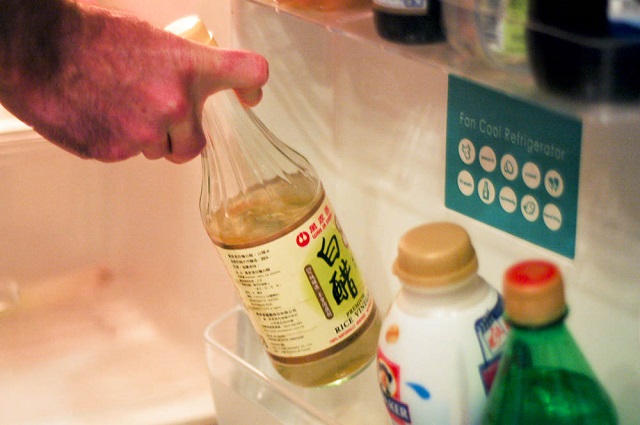How to store vinegar properly
Post time: Nov-21-2023
Vinegar, with its myriad uses in culinary and household applications, is a versatile pantry staple. To ensure that this acidic elixir retains its flavor and quality over time, proper storage is paramount. In this guide, we'll explore the best practices for storing vinegar to maintain its potency, flavor profile, and overall quality.

Selecting the Right Container:
The choice of container plays a crucial role in preserving the integrity of vinegar. Opt for Glass Jars or plastic bottles with airtight seals, as these materials are less permeable than others, preventing external odors and flavors from affecting the vinegar. Additionally, avoid containers made of reactive materials such as metal, as these can compromise the quality of the vinegar over time.
Protect from Light and Heat:
Vinegar is sensitive to both light and heat, which can accelerate the deterioration of its flavor and color. Store vinegar in a cool, dark place, away from direct sunlight and heat sources such as stovetops or ovens. Cupboards or pantry shelves are ideal locations for preserving the vinegar's quality.
Seal Tightly to Prevent Air Exposure:
Oxygen exposure can lead to oxidation, affecting the flavor and composition of vinegar. Ensure that the storage container has a tight-fitting lid to minimize air contact. This prevents the development of unwanted flavors and maintains the vinegar's acidity.
Avoid Temperature Fluctuations:
Consistency in temperature is key to preserving vinegar. Fluctuations in temperature can cause condensation inside the bottle, potentially diluting the vinegar and compromising its flavor. Choose a storage location with a stable temperature, avoiding areas prone to temperature variations.
Refrigeration for Certain Varieties:
While most types of vinegar can be stored at room temperature, certain varieties benefit from refrigeration. This is particularly true for fruit-infused vinegars, which may contain natural sugars that can ferment over time. Check the label for specific storage instructions, and if refrigeration is recommended, store the vinegar in the door of the refrigerator where temperatures are more stable.
Keep It Away from Strong Odors:
Vinegar has a strong and distinct aroma, making it susceptible to absorbing surrounding odors. Store it away from pungent substances like onions, garlic, or spices to prevent cross-contamination of flavors. Consider placing the vinegar in a dedicated section of your pantry to maintain its purity.
Check for Sedimentation:
Over time, some types of vinegar may develop sediment at the bottom of the container. This is a natural occurrence and doesn't necessarily indicate spoilage. Before use, simply shake the bottle gently to redistribute any settled particles and restore the vinegar's homogeneity.
Properly storing vinegar is a small yet significant practice that ensures this kitchen essential remains a reliable ingredient in your culinary endeavors. By selecting the right container, shielding it from light and heat, sealing it tightly, and avoiding temperature fluctuations, you can preserve the flavor and quality of vinegar for an extended period. With these guidelines in mind, your vinegar will continue to enhance a wide array of dishes, dressings, and marinades with its characteristic tang and acidity.
